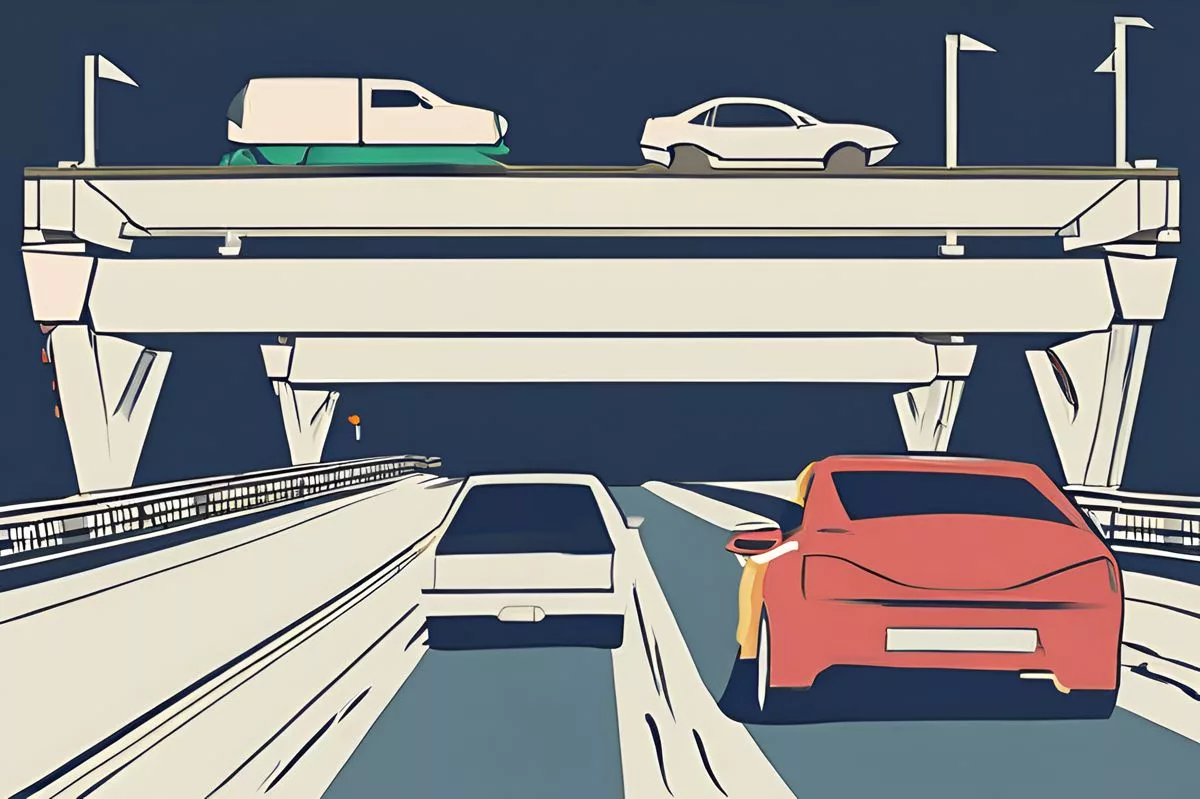The e-tolls in Gauteng, South Africa have been terminated due to public sentiment, marking a new chapter in the country’s transport infrastructure. The gantry lights and cameras will still operate for road safety, and payments at toll plazas can still be made through accounts in good standing. While discussions around sustainable funding solutions for road construction, maintenance, and upgrades continue, the discontinuation of e-tolls is a triumph for democracy and a step towards a more responsive and inclusive form of governance.
The e-tolls in Gauteng, South Africa have been terminated, in response to public sentiment. The ‘user-pay’ principle remains relevant, and discussions around sustainable funding solutions for road construction, maintenance, and upgrades continue. The gantry lights and cameras will still operate for road safety, and accounts in good standing can still be used for payments at toll plazas. The discontinuation of the e-tolls is a milestone for South Africa’s journey towards a more equitable and responsive transport infrastructure.
A New Chapter in South African Transport
In a landmark development for South Africa’s transport infrastructure, the curtain has fallen on the e-toll era in Gauteng. This announcement was made by Minister Sindisiwe Chikunga on a crisp autumn evening, symbolizing the government’s steadfast determination to cater to the needs of its populace.
The deactivation of the gantries at midnight was not simply about halting an operational tolling system. Instead, it was a symbolic act that highlighted the government’s attentiveness and response to public sentiment. As quoted by Minister Chikunga, “Henceforward, motorists will not incur charges for using the Gauteng Freeway Improvement Project (GFIP) network.”
When the e-tolls first started functioning, they were seen as an essential part of the infrastructure supporting Gauteng’s economy, which is among the most vibrant in the country and across Africa. However, the public’s strong resistance against the tolling system eventually led to a policy change, evidencing the nation’s democratic spirit.
Deliberations Leading to the End of E-Tolls
The decision to discontinue e-tolls did not occur without considerable deliberation. A tri-member Cabinet committee, initiated by President Cyril Ramaphosa in 2019, examined the intricacies of alternative funding solutions for the GFIP’s debt repayment, as well as the accumulated costs of maintenance and rehabilitation. The result was a Memorandum of Agreement that clarified the financial contributions of Gauteng Province and the national government.
While the e-tolls have become a thing of the past, the ‘user-pay’ principle, a crucial aspect of government policy, still remains relevant. The government is committed to continuing discussions with all stakeholders to find sufficient and sustainable funding solutions for road construction, maintenance, and upgrades, thus stimulating economic growth across the country.
However, the issue of historical debt owed by motorists remains a subject of ongoing conversation within the government. For the South African National Roads Agency Limited (SANRAL), this is a significant benchmark that clears the way for acquiring funding from the private sector, thereby driving capital expenditure projects.
Post E-Toll Changes and Impact on the Future
As we bid goodbye to the e-tolls, it is crucial to remember that the benefits offered by improved roads persist. Post-deactivation, the gantry lights and cameras will continue operating for the purpose of road safety. The e-toll website will be updated to reflect these changes. Current accounts in good standing can still be used for payments at toll plazas and various Value-Added Services. Additionally, the e-toll tag beeps will stop after midnight, and e-toll stores will continue operations, albeit with a phased removal of e-toll branding.
According to Minister Chikunga, this milestone is a “triumph for democracy, where the citizens’ voices have been heeded and acted upon.” As we progress, this should serve as a reminder of the impact of collective voices and the unwavering dedication of the government to serve its people.
In a broader perspective, this policy shift epitomizes the dynamic interaction between public sentiment and policy formation, a testament to South Africa’s resilient democracy. The discontinuation of the e-tolls is not just a local event, but it sends ripples across the country, signaling a shift towards a more responsive and inclusive form of governance.
In conclusion, the termination of the e-toll era in Gauteng is an event of remarkable significance, marking an important milestone in South Africa’s journey towards a more equitable and responsive transport infrastructure. As we say goodbye to the e-tolls, we are reminded of the power of public voices and the responsiveness of a government committed to serving its people.
1. Why were the e-tolls terminated in Gauteng, South Africa?
The e-tolls in Gauteng, South Africa were terminated due to public sentiment and resistance against the tolling system.
2. Will toll plazas still be in operation for payments?
Yes, payments at toll plazas can still be made through accounts in good standing.
3. Will the gantry lights and cameras still be in operation?
Yes, the gantry lights and cameras will still operate for road safety.
4. What is the ‘user-pay’ principle?
The ‘user-pay’ principle is a crucial aspect of government policy that remains relevant even after the termination of e-tolls. It means that users of the road network are responsible for funding its construction, maintenance, and upgrades.
5. Is the government still committed to finding sustainable funding solutions for road infrastructure?
Yes, the government is committed to continuing discussions with all stakeholders to find sufficient and sustainable funding solutions for road construction, maintenance, and upgrades.
6. What is the impact of the termination of e-tolls on South Africa’s democracy?
The termination of e-tolls in Gauteng is a milestone for South Africa’s journey towards a more equitable and responsive transport infrastructure. It is also a testament to the impact of collective voices and the unwavering dedication of the government to serve its people, reflecting the dynamic interaction between public sentiment and policy formation in a resilient democracy.












